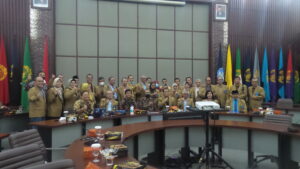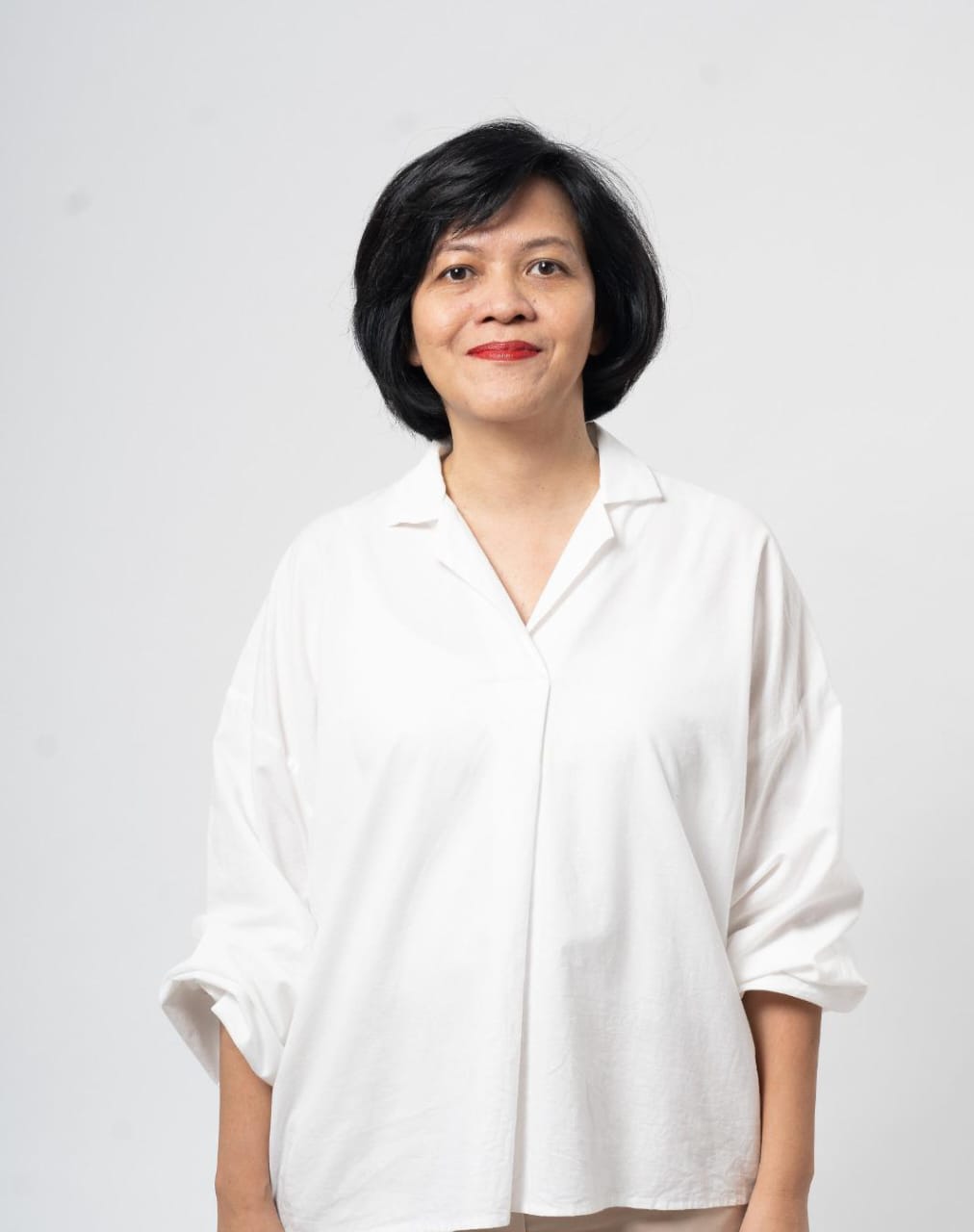
Author: Alfin Heriagus
On Tuesday (05/07/2022), Universitas Indonesia (UI) was visited by Universitas Sebelas Maret (UNS) for conducting a comparative study to discuss education, research, dedication, and community service for both industrial and academic cooperation. The comparative study visit held at Rektorat UI Building aims to establish relationship and collaboration between Academic Senate of UI and Academic Senate of UNS in creating research to improve the reputation of the university.
Prof. Dr. Adi Sulistiyono, S.H., M.H., as the Chairman of Academic Senate of UNS along with 32 staff met directly with Vice Rector for Academic and Student Affairs; Prof. Dr. rer. nat. Abdul Haris, Chairman of Academic Senate of UI; Prof. Nachrowi Djalal Nachrowi, MSc., MPHil., Ph.D., and his staff. The two-hour comparative study discussion was moderated by the Secretary of Academic Senate of UI Prof. Yudho Giri Sucahyo, Ph.D, CISA, CISM.
This comparative study activity was warmly welcomed by Prof. Abdul Haris. He said that this meeting was an important thing in managing a comprehensive university. In his welcoming speech, Prof. Abdul Haris said that universities are required to be adaptive in order to develop a learning curriculum that has been designed by Ministry of Education and Culture. Not only focusing on academic development, the former Dean of Faculty of Mathematics and Natural Sciences for 2014-2019 period also emphasized that research can also help the reputation of ranking according to various survey institutions.
Prof. Nachrowi in his explanation touched on the UI Statute in article 44 paragraph 1 regarding the duties and obligations of Academic Senate Assembly (MSA) which have a vital role in supervising the rector ‘s performance in the academic field. During his time at MSA UI, Prof. Nachrowi assessed the performance of UI Rector; Prof. Ari Kuncoro, SE, MA, Ph.D. was very impressive in improving academic reputation. This is proven by the increase in UI ranking according to QS World University Ranking at the global position of 248, becoming the best in the nation according to THE World University Ranking, Webometric, QS Asia World Ranking, and THE Impact Rankings in 2022.
“Of course, these results come from the hard work of the entire UI community, especially lecturers who conducted various researches, and research published in scorpus journal publications, so that according to the majority of survey institutions, UI is the best in Indonesia,” said Prof. Nachrawi. The number of lecturers who conducted research cannot be separated from UI’s support in providing rewards to lecturers as a form of appreciation for the synergy and efforts that have been made.
In the comparative study, Prof. Abdul Haris assessed that currently UI is strengthening three clusters in terms of academics, which are health, science, and social humanities. At UI, there are cross-major courses, such as the Integrated Personality Development Course (MPKT), which is spread across all faculties. The purpose of this course is to shape character development both academically and non-academically. Not only that, Prof. Abdul Haris mentioned how important it is to build interactions with alumni to help students succeed both academically and non-academically.
Speaking about research, Prof. Nachrawi said that UI always encourages the development of research both in quantity and quality as a form of response in facing the challenges of world development. UI also facilitates research activities, as a form of freedom of thought, academic freedom, and responsibility of the academic community. Based on UI Academic Senate Regulation Number 001 of 2017 article 2, research acculturation needs to be carried out to accelerate the process of UI becoming a center of science, technology, and culture that is superior and competitive.
According to Prof. Yudho, there are three important things that universities need to do in reorganizing the ranking, which are education, research, and service. A lecturer and researcher in Faculty of Computer Science of UI said that there are qualified lecturers in the faculty, but there is still a lack of research. “However, there are also lecturers who are good both in teaching and research, this is what we hope for UI,” he said.
Referring to the UI Senate Regulation on research acculturation norms, there are 4 categories of research conducted by UI, namely basic, applied, translational, and science development. Basic research is basic science research that is closely related to theory development and becomes the basis for scientific progress. Applied research is the application of basic science in order to produce product prototypes and problem-solving models that are beneficial to the welfare of society. Translational research, on the other hand, is research that bridges the gap between basic and applied. Finally, science development research, which is the further development of applied research based on requests or needs of the community according to market needs.
Representing UNS, Prof. Dr. Adi Sulistiyono delivered several important points in the comparative study with UI, especially the learning curriculum. The number of A-accredited study programs from UI, according to Prof. Adi, is a picture of an institution that is successful in developing the learning curriculum implemented by the government. This meeting is a motivation for UNS to continue to develop research, education, and development in order to recast UNS ranking which currently managed to enter the 1,000 position according to QS World University Ranking.
On July 23, 2022, UI will visit Universitas Negeri Jakarta (UNJ) for a comparative study. Prof. Yudho assessed that university comparative study activities are very important to strengthen the relationship, as well as to bind synergies in collaborating with fellow universities. This is in line with the response of the Secretary of UNS Academic Senate Prof.Ir. Ari Handono Ramelan, M.Sc (hons)., Ph.D., that thanks to comparative studies with various universities, UNS is increasingly committed to intensifying research and service. Evidently, as much as 20% of UNS budget is used for research and 10% for innovation and service.



